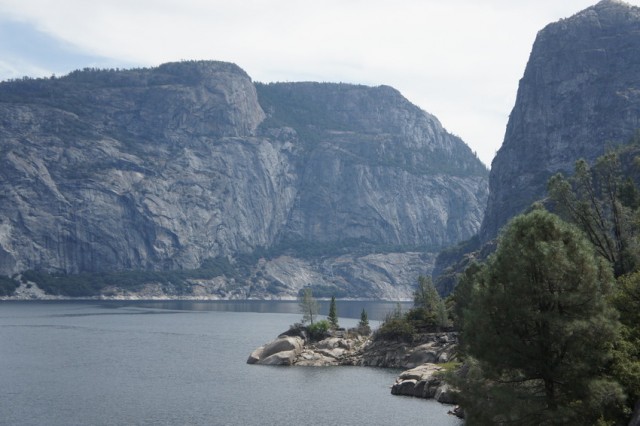Proponents say this makes sense on multiple levels:
- San Francisco tap water has always been superior in taste and considered among the highest-quality water in the country. It comes primarily from snowmelt flowing down the Tuolumne River to Hetch Hetchy Reservoir in Yosemite National Park (which is why potential damage to the reservoir from the Rim Fire caused so much concern), and is quality-tested over 100,000 times a year. Water from the Hetch Hetchy is so pure that the Environmental Protection Agency and the state Department of Public Health require no filtration of it.
- It saves money. The sales ban would build on an executive order from 2007, signed by former Mayor Gavin Newsom, that prohibits use of city money to buy bottled water; the initiative cut $500,000 of annual city spending (a 2006 story in the San Francisco Chronicle found the city had paid more than $2 million for water, paper cups and dispenser rentals in recent years).
- Environmentalists and others have long warned against using bottled water, saying it creates waste and uses excessive natural resources. Estimates are that bottled water production uses 17 million barrels of a oil per year and requires triple the amount of water to make a bottle as it does to fill it.
Of course, making tap water accessible in the city poses some challenges. For example, at Outside Lands, the annual S.F. music festival in Golden Gate Park that draws some 65,000 people, there were a mere 3 refillable tap water stations, which caused some frustration. If the ordinance is approved, the city will study how to better supply water at events, and make the installation of water fountains and reusable bottle filling stations a priority.
Smaller municipalities have taken steps to go bottled water-free, but San Francisco would become the first major city to ban bottled water sales, and cement its reputation — if it hasn't already — as the national enviro mecca. It's already a leader in recycling and composting efforts, and has a goal of producing zero net waste by 2020.
See current outdoor tap water stations in San Francisco here.
The legislation is co-sponsored by Supervisor Eric Mar and supported by various environmental groups, but the business group International Bottled Water Association issued a statement today in opposition to the proposal.
The group said it "supports the right of San Franciscans to choose clean, refreshing, reliable zero-calorie bottled water when making their beverage decisions."
The group said, "Efforts to eliminate or reduce access to bottled water will force consumers to choose less healthy drink options that have more packaging, more additives (e.g., sugar, caffeine), and greater environmental impacts than bottled water."
The proposal will likely have its first public hearing at a Board of Supervisors committee meeting in late January, according to Chiu's office.
